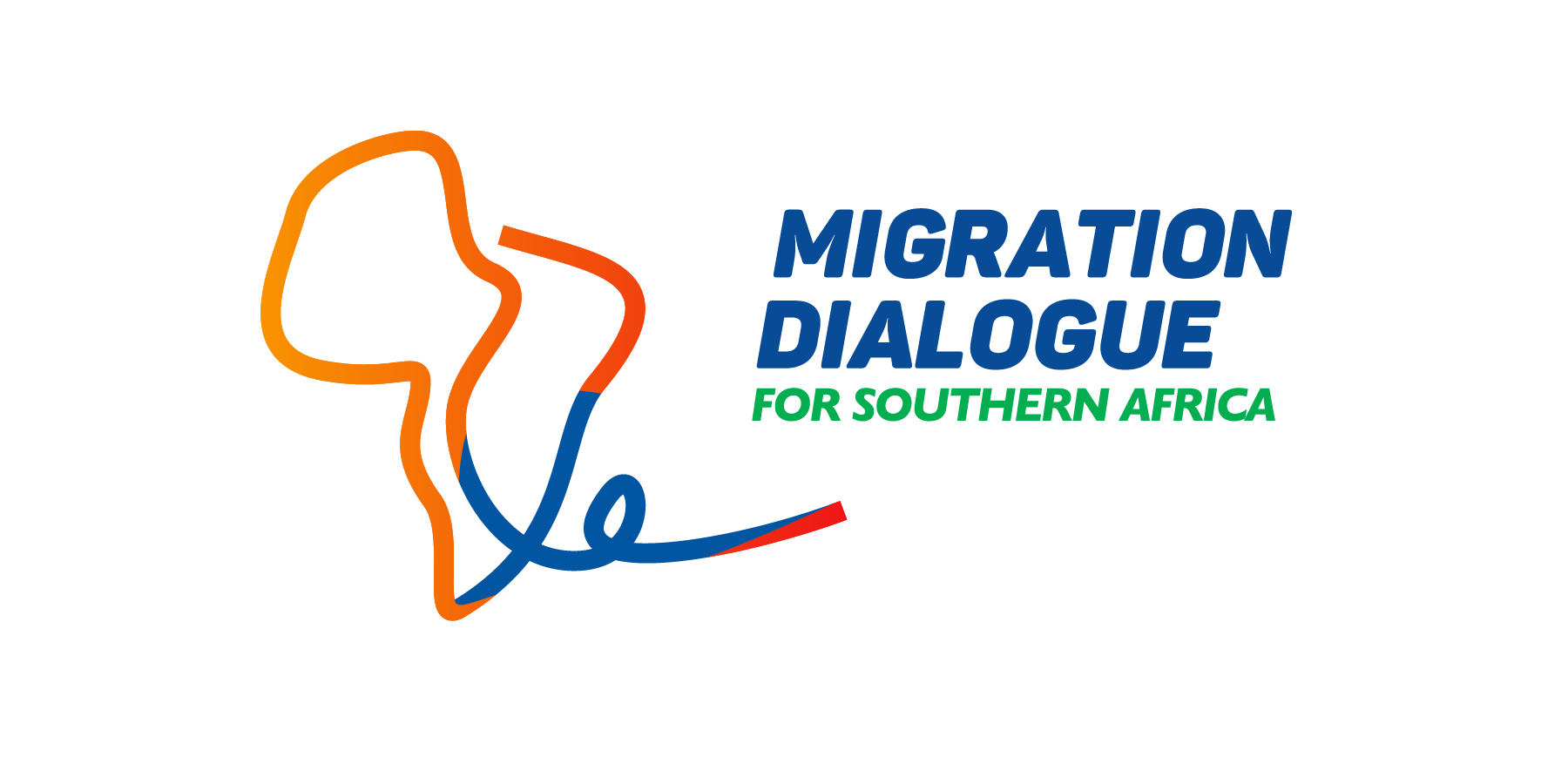-
Who we are
WHO WE AREThe International Organization for Migration (IOM) is part of the United Nations System as the leading inter-governmental organization promoting since 1951 humane and orderly migration for the benefit of all, with 175 member states and a presence in 171 countries.
-
Our Work
Our WorkAs the leading inter-governmental organization promoting since 1951 humane and orderly migration, IOM plays a key role to support the achievement of the 2030 Agenda through different areas of intervention that connect both humanitarian assistance and sustainable development.
What We Do
What We Do
Partnerships
Partnerships
- Where we work
-
Take Action
Take Action
Work with us
Work with us
Get involved
Get involved
- Data and Research
- 2030 Agenda

Type: Regional Consultative Proces on Migration (region covered: Africa)
Association with regional or multi-stakeholder organization: Southern African Development Community (SADC)
Established: 2000

Objectives
The Migration Dialogue for Southern Africa (MIDSA) creates a framework for a regular migration dialogue among the Member States of the Southern African Development Community (SADC), to enhance inter-state cooperation in an effort to improve migration governance through:
- Discussion of migration issues among SADC Member States in an informal seeting, sharing experience and challenges, and finding solutions collectively, to improve migration management in the SADC region.
- Promotion of the positive aspects of migration among SADC Member States; and
- Development of regional institutional capacities to improve migration governance while strengthening the capacity of Governments to meet their migration challenges in a comprehensive, interactive, self-reliant and, ultimately, sustainable way.
Current Thematic Focus
Specific areas of focus include:
- Border management
- Combatting human trafficking
- Combatting migrant smuggling
- Irregular migration
- Plow migration
- Migrant health
- Migrants' rights
- Migration and development
- Return and readmission
- Migration governance
- Unaccompanied migrant children / separated children
Chairing Country:
- Current Chair: Angola
- Past Chair: The Democratic Republic of Congo (2023), Malawi (2022), Mozambique (2021), Tanzania (2020), Namibia (2019), South Africa (2017), Eswatini (2016)
Secretariat
- IOM provides technical and administrative support to the MIDSA.
- Members
-
Member States (16 States)
- Angola
- Botswana
- Comoros
- Eswatini
- Democratic Republic of the Congo
- Lesotho
- Madagascar
- Malawi
- Mauritius
- Mozambique
- Namibia
- Seychelles
- South Africa
- Tanzania
- Zambia
- Zimbabwe
Note: Founding Members: Angola, Botswana, Democratic Republic of the Congo, Eswatini, Lesotho, Malawi, Mauritius, Mozambique, Namibia, Seychelles, South Africa, Tanzania, Zambia and Zimbabwe.
- Observers
-
Observer States (9 States)
- Australia
- Canada
- Denmark
- Netherlands, The
- Norway
- Sweden
- Switzerland
- United Kingdom
- United States of America
Observer Organizations (6 Organizations referred by MIDSA as "partner organizations")
- Meetings
-
- October 3-6, 2023, Kinshasa, Democratic Republic of the Congo, MIDSA Ministerial and Experts Meeting "Promoting Regional Integration through Making Migration Safe, Regular, and Orderly in the Southern African Region
- November 7-10, 2022, Malawi, MIDSA Senior Officials Meeting “Strengthening Migration Management in Southern Africa through Scaling-up Interventions that Facilitate Safe, Orderly and Regular Migration in Southern Africa”
- October 25-28, 2021, Maputo, Mozambique, MIDSA Ministerial Meeting “Reviewing Approaches to Safe, Regular and Orderly Migration in the Context of COVID-19 in the Southern Africa Region”
- June 25-28, 2019 Windhoek, Namibia, Senior Officials' and Ministerial Meetings, “Regional Migration Governance and Sustainable Development: Priorities for the Southern Africa Region”
- September 11 - 13, 2018, Pretoria, South Africa, Senior Officials 'Meeting “Enhancing Migration Governance in the Southern Africa Region: Harnessing the Youth Dividend for Sustainable Development and Regional Integration” June 27-28, 2018, South Africa, Senior Officials' Meeting
- September 2-4, 2017, Ezulwini, Eswatini, Ministerial Meeting "Addressing Mixed Migration in Southern Africa: Linking Protection, Immigration, Border Management and Labor Migration".
- August 16-18, 2016, Gaborone, Botswana, Technical Meeting: Addressing Mixed Migration in Southern Africa: Linking Protection, Immigration, Border Management and Labor Migration ".
- July 7-9, 2015, Victoria Falls, Zimbabwe, Ministerial Meeting under the theme, “Addressing Mixed and Irregular Migration in the SADC region: Protection of the Unaccompanied Migrant Child”. FInal Declaration ( EN | FR | PR ).
- June 30- July 2, 2014 - Lilongwe, Malawi, Senior Officials' Meeting under the theme, “Taking Stock of Efforts to Address Mixed and Irregular Migration” .
- July 10-11, 2013 - Maputo, Mozambique, Ministerial meeting under the theme “Enhancing Labor Migration and in the SADC Region”.
- August 27-29, 2012 - Balaclava, Mauritius, Technical Meeting to bring together Southern African Development Community (SADC) Permanent Secretaries responsible for issues of migration and their counterparts responsible for labor mobility.
- November 15-17, 2010 - Windhoek, Namibia, MIDSA Ministerial Conference on Migration through Regional Cooperation,
- Documents
-
- SADC GCM Regional Review 2022
- SADC Labor Migration Action Plan for 2013-2015
- SADC Labor Migration Action Plan for 2016-2019
- SADC Irregular Migration and Mixed Migration Action Plan for 2015-2018
- Final MIDSA 2016 Conclusions and Recommendations
- Report and Recommendations of the MIDSA Conference on Adressing Mixed and Irregular Migration in the SADC Region: Protection of the Unaccompanied Migrant Child (2015)
- 2015 Ministerial Declaration, Victoria Falls ( EN | FR | PR )
- 2013 MIDSA Ministerial Report and Recommendations, Maputo
- 2010 MIDSA Ministerial Report and Recommendations, Windhoek
MIDSA Workshop Reports:
- 2009 Promoting Health and Development
- 2006 Irregular Migration
- 2005 Migration Management
- 2004 Development
- 2004 Health
- 2004 Smuggling
- 2003 Extra Regional
- 2003 Forced Migration
- 2003 Trafficking
- 2002 Trafficking
MIDSA Workshop Report and Recommendations:
- Related Links
- Contact information
-
Mr Wonesai Sithole
Regional Policy and Liaison Officer
International Organization for Migration Mission in South Africa
E-mail: WSithole@iom.int
https://southafrica.iom.int/Website
https://ropretoria.iom.int/